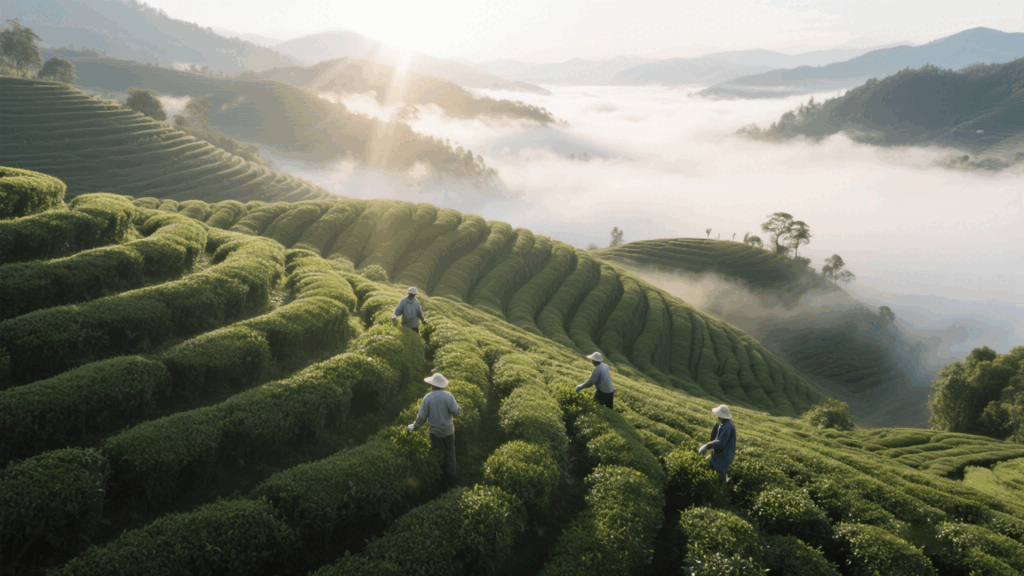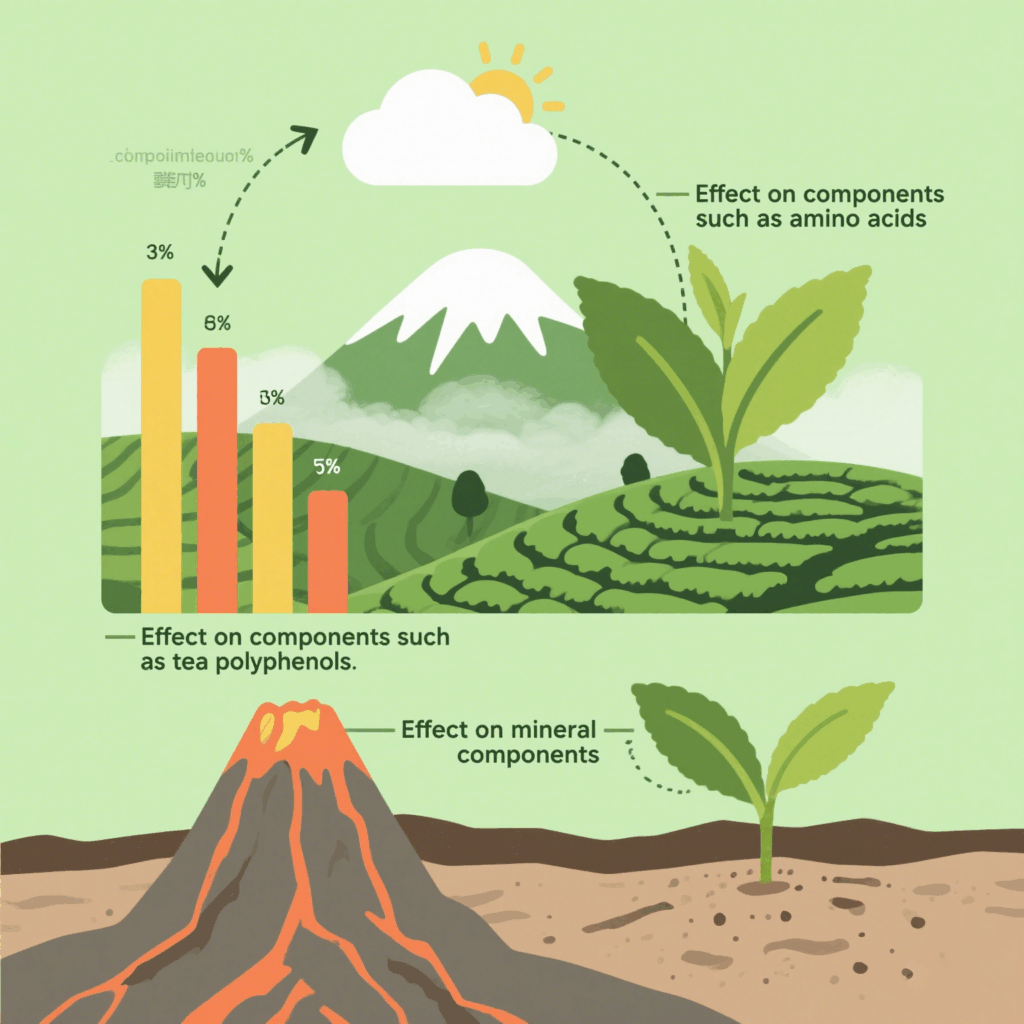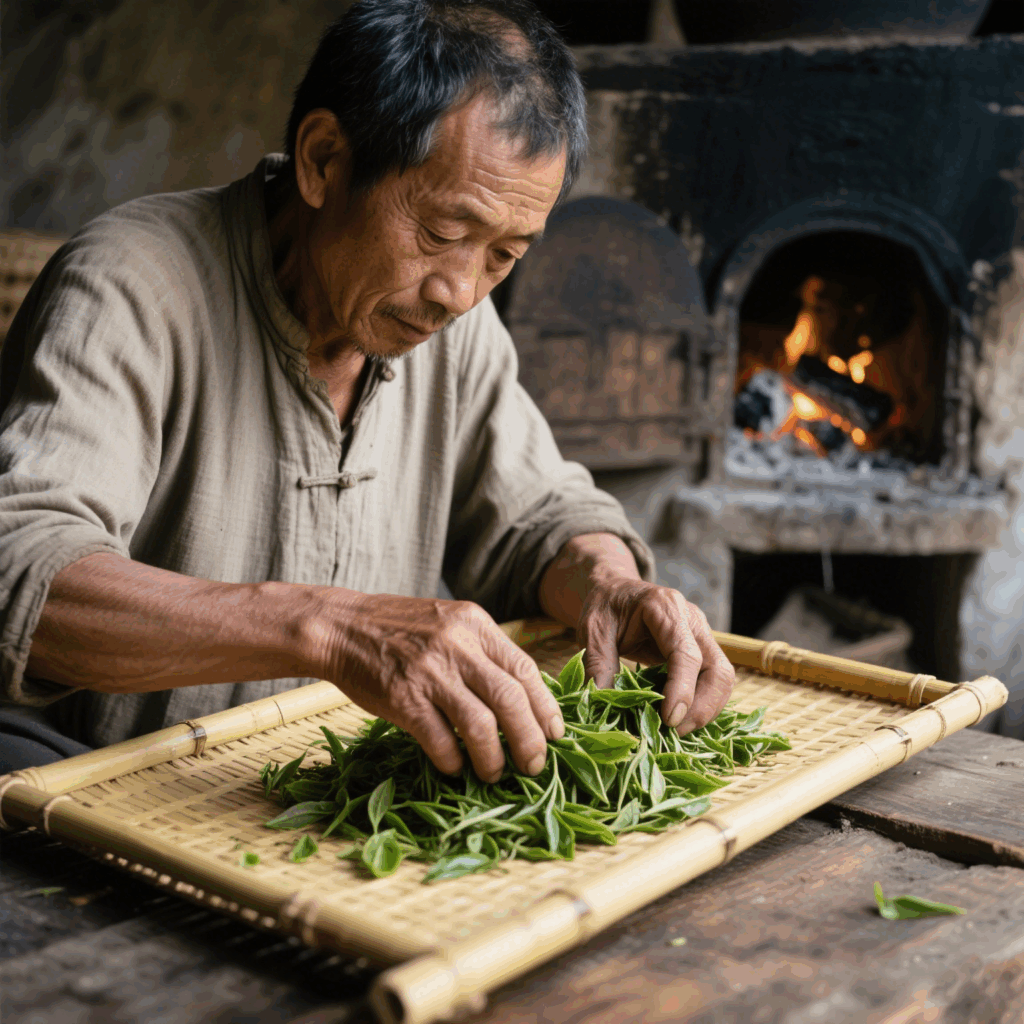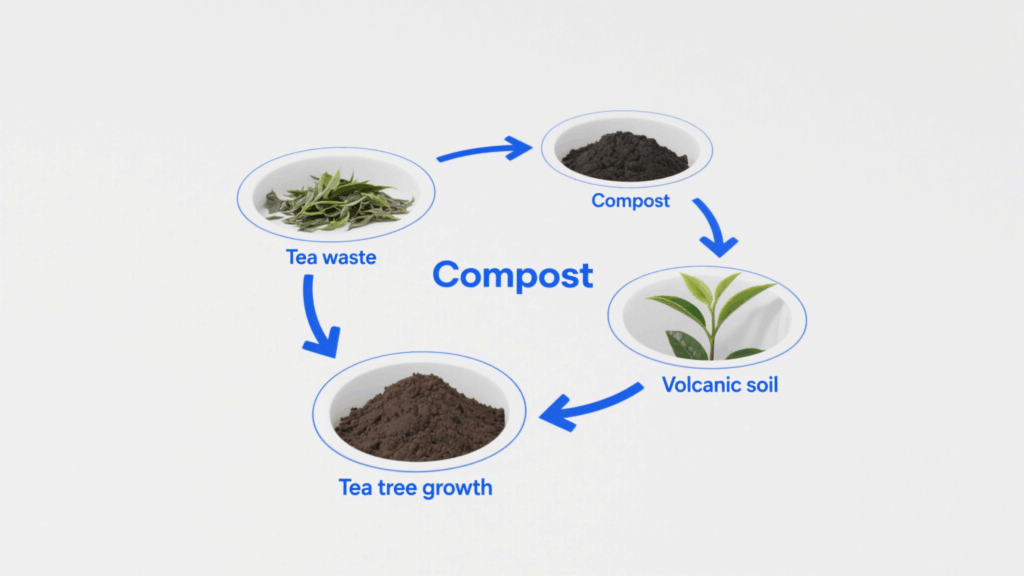Why Altitude Defines Excellence
At 1,600 meters above sea level, Awakening Tea Garden thrives where clouds kiss the mountains. High-altitude tea isn’t a marketing gimmick—it’s science. Thin oxygen levels slow leaf growth, concentrating amino acids and polyphenols. Cool nights preserve delicate aromas, while volcanic soil infuses minerals like zinc and selenium. UNESCO lists this region as a “Global Agricultural Heritage” site, and here’s why.

The Microclimate Miracle
Nature’s Perfect Tea Laboratory
Three factors make Awakening Garden unique:
- Daily Mist Blanket: Prolongs photosynthesis, boosting chlorophyll by 23% (Journal of Mountain Agriculture).
- UV Intensity: High elevation increases ultraviolet light, triggering leaf defenses that raise antioxidants.
- Biodiversity: Over 180 native plant species create a pest-resistant ecosystem, eliminating pesticides.
A 2023 Chinese Academy of Agricultural Sciences study found our oolong teas contain 40% more EGCG than lowland equivalents.

From Bud to Cup: Crafting Altitude Tea
Handpicked Precision
Only the top two leaves and a bud are harvested at dawn, when dew maximizes freshness. Fermentation occurs in bamboo trays under natural humidity, a method unchanged since the Ming Dynasty.
Key Steps:
- Withering: 8-hour airflow exposure reduces moisture.
- Rolling: Activates enzymatic oxidation for floral notes.
- Roasting: Charcoal fire locks in volcanic soil’s mineral profile.
This 72-hour process yields just 500g of tea per worker daily.

Health Benefits of High-Altitude Tea
Science in Every Sip
- Stress Relief: L-theanine levels are 31% higher than lowland teas, proven by Zhejiang University to lower cortisol.
- Metabolic Boost: Rare polysaccharides in our pu-erh aid lipid metabolism (Harvard School of Public Health, 2022).
- Longevity: Okinawa’s centenarians consume similar high-elevation teas daily, linked to reduced cellular aging.
Sustainability: Protecting the Peak
Zero Waste, Maximum Care
We practice “closed-loop” farming:
- Compost: Spent leaves become organic fertilizer.
- Water: Solar-powered pumps recycle mountain springs.
- Energy: Roasting uses fallen pine branches, not coal.
Awakening Garden is carbon-negative, absorbing 12 tons of CO2 annually per hectare.

Visit the Source
A Journey for the Senses
Join our sunrise tea-plucking tours or meditation sessions amidst the clouds. Visitors describe the experience as “tasting the mountain’s soul.” Book a stay in our treehouse villas, built from reclaimed timber.

